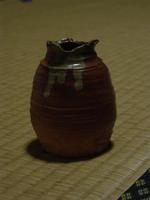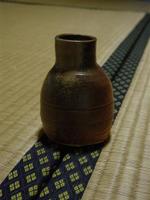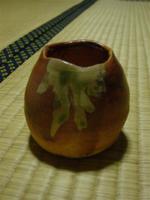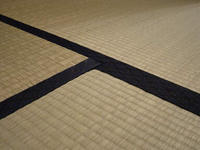 Kokedera, "Moss Temple," is the nickname for Saihoji, a small Zen temple in western Kyoto. As its nickname implies, it is famous for moss. It is so famous, in fact, that you have to apply weeks in advance to get in and pay the incredible amount of 3000 yen (~$30).
Kokedera, "Moss Temple," is the nickname for Saihoji, a small Zen temple in western Kyoto. As its nickname implies, it is famous for moss. It is so famous, in fact, that you have to apply weeks in advance to get in and pay the incredible amount of 3000 yen (~$30).I had heard great things about this temple from friends and teachers. I had heard that not only do you get to tour the magnificent moss gardens, but you also get to copy sutras. In fact, I heard you were Required to copy sutras. Sounded like fun to me, so I went.
Disappointment #1: We didn't copy sutras. We did write our names and our "Negai goto" (thing we wish for) on a "gomaki" (a stick of wood for writing wishes and names on that will later be burned in a ceremony to release your wishes to the heavens where they can be answered), but I was really hoping for some sutra writing. At least we got to participate in sutra chanting.
Disappointment #2: The moss was a little dry. I guess I was expecting the sort of moss I had seen at Ginkakuji earlier in the year right after the rains. Plants that survive on humidity lose their luster during the dry summer, I know, but I was hoping for a little more green. Not that there was a lack of moss; according to the guide, there are over 150 different kinds of it in the garden.
Disappointment #3: It started to rain on our way into Matsuo Shrine, so we didn't get to wander around, and I didn't get time to try to remember the things I had read about it.
The day was not all disappointing, however. I got to go to a section of Kyoto I rarely see, and it had been awhile since I'd made a temple visit. It was a nice break from the studying.





